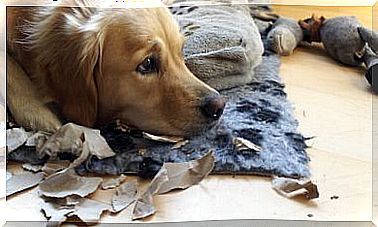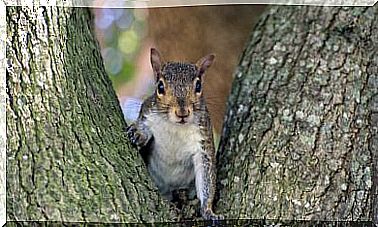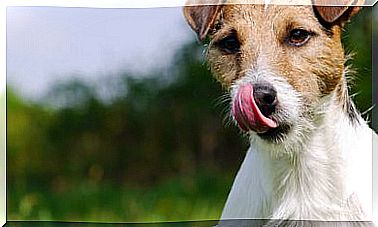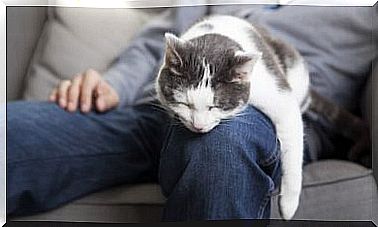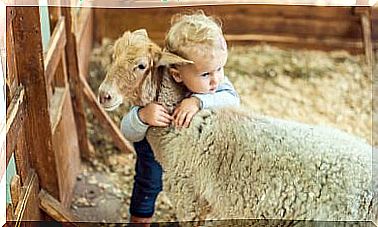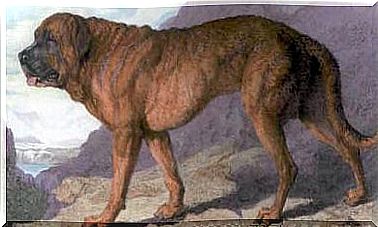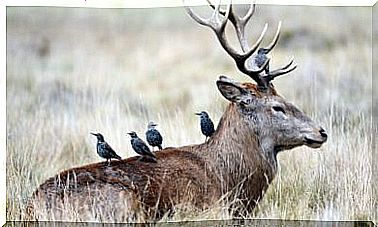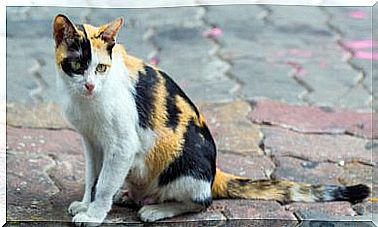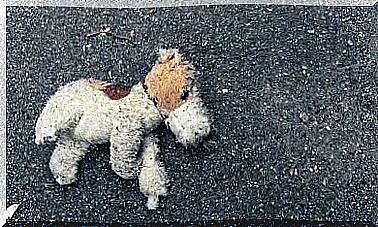Why Does My Dog lick The Wall?
Understanding the behavior of our dogs can be a headache, especially when they do things that are illogical in our judgment. Rolling around in the mud while freshly bathed, sucking on a sweaty sock, rummaging in the garbage can, licking the wall … Behind all these strange behaviors there is always an explanation, we just have to put ourselves in the role of the animal and try to understand it.
Entering the subject, we are going to look for the possible reasons that cause our dog to lick the wall. To do this you have to think like a dog, run like a dog, eat like a dog … or keep reading to find out.
The wall, an inedible element
First of all, it would be nice to point out that the intake of non-food substances is widely studied by ethologists and veterinary nutritionists. With this data we have a fundamental clue to solve the mystery of the licking of the wall. If these two fields of medicine have studied it, it can be assumed that the reason is related to nutrition and behavior.
Well, this behavior disorder is called pica. Pica is defined as the ingestion of materials and substances that are not part of the usual diet of the animal in question. Logically, a wall is not part of the usual diet of dogs, so we can talk that if the dog licks the wall it suffers from this disorder.
Now, a priori there could be no reason for the dog to lick the wall. We can understand that he rummages through the garbage because perhaps we have thrown a chicken thigh without scratching it completely or want to finish the job. The question is, why do they do it?
Psychological motives
As we anticipated previously with one of the causes, and in the opinion of the writer, the main one, is due to behavioral disorders. Dogs are very intelligent animals and have a great capacity to develop complex emotions. This, although it is a positive element that makes these animals one of the favorite pets, has its negative counterpart, since their mental health is another aspect that must be taken care of as part of their well-being .
When our animal suffers from stress, boredom or anxiety, it can manifest these states by licking the wall, in the same way that we can bite our nails. This behavior is nothing more than a manifestation of a feeling developed by the dog.
There are many reasons that may be behind these feelings, so we always recommend going to a professional when this behavior occurs. But for guidance, we will explain below some of the causes that produce these moods.
- Dogs with a lot of energy: Dogs that do little physical or mental exercise and that are very active can develop anxiety by not consuming all that energy.
- Dogs with fears or phobias: Animals that have been mistreated or that have suffered traumatic situations can maintain a state of mind of constant stress or anxiety that causes this behavior.
- Separation anxiety: Individuals very attached to their owners who cannot bear to be alone at home. This may be one of the most frequent reasons.
- Environmental changes: Of any kind. New animals at home, birth of babies or change of address may be behind this behavior.
Nutritional reasons
It is widely documented that in animals that suffer from nutritional deficiencies it is very common for them to develop behaviors of ingestion of non-food substances. If there are these deficiencies, the animal’s organism can try to compensate by trying to ingest anything that can alleviate this deficiency.
Many walls are made of plaster – plaster is calcium sulfate – and calcium is a fundamental element in the body, so a malnourished animal has a whole wall of calcium to lick. Currently, this reason does not appear frequently after pica disorders. Most commercial feed has an adequate nutritional balance that avoids any type of deficiency. These deficiencies usually occur in animals that eat a homemade diet , usually based on human scraps.
Justified conduct
As we have seen, behaviors that at first may be anecdotal hide serious reasons. It is necessary to pay attention to our animal and know how to interpret its signals, no matter how strange they may seem, and act accordingly.
